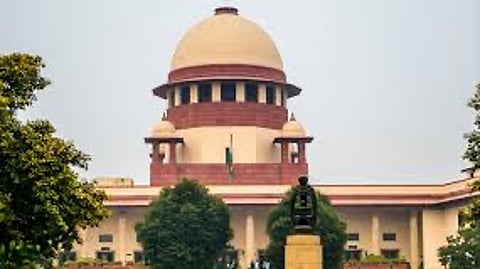

The Supreme Court of India has strongly criticized West Bengal's recent policy of avoiding night shifts for women doctors, emphasizing the need for equal opportunities and improved security measures in the state’s medical colleges and hospitals. The case, which arose following the tragic rape and murder of a postgraduate trainee doctor at Kolkata’s RG Kar Medical College, led the court to evaluate the state's new advisory restricting the working hours of female doctors. The bench, headed by Chief Justice of India DY Chandrachud, along with Justices JB Pardiwala and Manoj Misra, expressed concern over the policy, which advised against allotting night duties to women doctors and limiting their working hours to 12 hours per day.
During the hearing, CJI Chandrachud questioned the rationale behind the state’s decision, stating, “How can you say women cannot work at night? Why limit them? Women are ready to work the same shifts as men, Mr. Sibal. The solution is to provide security, not concessions.” He urged the state to retract the advisory and implement better security measures for women doctors.
West Bengal's policy was introduced as part of an initiative called "Rattirer Sathi" (Night Companion), aimed at ensuring the safety of women doctors in response to the RG Kar Medical College incident. Alapan Bandopadhyay, the Chief Minister's principal advisor, announced that women doctors should be exempt from night duties "as far as possible," sparking a debate on gender equality and workplace safety.
Advocate Karuna Nandy, representing a trust named Doctors for Patients, opposed the policy during the Supreme Court hearing, stating that it unfairly limited the career prospects of women doctors. The court echoed these concerns, emphasizing that the restrictions would have long-term consequences for their professional growth. “The conditions of women doctors not working at night will prejudice their careers,” the bench remarked.
The court emphasized that duty hours should be reasonable for all doctors, but it would be “inappropriate” to target women doctors with restrictions not applied to their male counterparts. Advocate Kapil Sibal, representing the West Bengal government, assured the court that the policy’s wording would be corrected to remove discriminatory language, but he noted that it was initially introduced with the word "preferably" in mind, meaning it was not an absolute rule.
The court also addressed the issue of ongoing protests by junior doctors in West Bengal, who have been on strike following the RG Kar incident, citing concerns over their safety and the lack of adequate security in hospitals. Advocate Nandy highlighted that senior doctors had been working overtime due to the junior doctors’ absence, with some facilities operating in a near-crisis state. The CJI questioned the West Bengal government on what specific steps were being taken to ensure the safety of junior and senior doctors alike. Advocate Sibal responded by outlining measures such as the installation of CCTV cameras, construction of restrooms, and the placement of additional toilets for both male and female doctors, with deadlines set within 7-14 days for completion.
However, the court pointed out the shortcomings in the implementation of these security measures, noting that out of the 415 CCTV cameras promised for RG Kar Medical College, only 37 had been installed. The court suggested that women doctors should have access to biometric security systems in designated rest areas to ensure their safety at night. The bench stressed that the involvement of district magistrates and senior doctors was crucial for the successful implementation of these safety measures.
Additionally, the court raised concerns about the state's decision to outsource hospital security to a private contractor, noting that the accused in the RG Kar incident was a civic volunteer hired on a contractual basis. The court recommended that police officers should be stationed in government hospitals to provide a more secure environment, particularly for young doctors who often come from different parts of the state to work in Kolkata.
The Supreme Court also directed the formation of monitoring committees in hospitals to oversee security arrangements, set up confidential grievance redressal mechanisms, and establish counseling centers to address the mental health challenges faced by doctors. These committees would consist of hospital administrators, nurses, senior doctors, and representatives from junior doctors, ensuring a participatory process for decision-making. The court expressed hope that these steps would encourage junior doctors to return to work without fear of retribution.
As the court awaits the completion of the ongoing CBI investigation into the RG Kar incident, it emphasized the need for swift and transparent action. A letter from the deceased doctor’s father was treated as confidential evidence, with the court instructing the CBI to consider the valuable leads provided. The court also ordered Wikipedia to remove the name and photograph of the deceased doctor from its platform, stressing that the identity of victims in such cases should remain protected.
In the meantime, the Supreme Court continues to monitor the implementation of these security measures to ensure that all doctors, irrespective of gender, can work without fear and discrimination.
(Input from various sources)
(Rehash/Ankur Deka/MSM)
